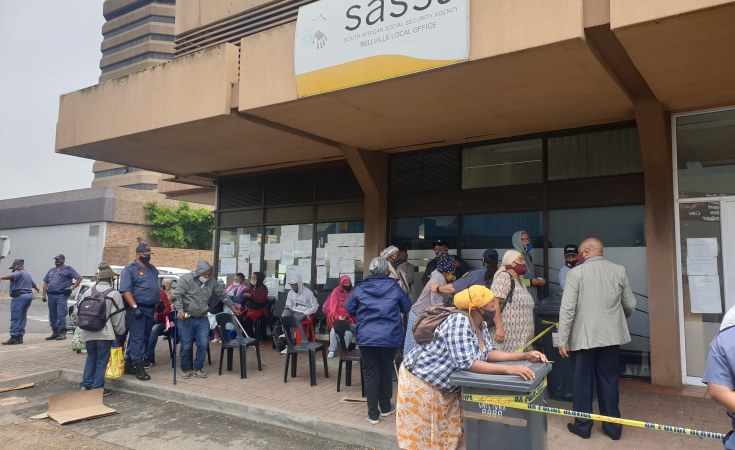Pensioners often carry households at the expense of their own needs
- Beneficiaries of the Older Persons Grant often need to carry households, at the expense of their own needs, a UCT research report has found.
- Most live in big low-income households.
- The high cost of food, transport and electricity is straining the budget of households headed by beneficiaries of the grant.
Researchers at the University of Cape Town (UCT) have found that in most cases, the Older Persons Grant is not sufficient to meet the needs of elderly people in South Africa.
Professor Elena Moore and other researchers from Family Caregiving, based in the Department of Sociology at UCT, interviewed 30 families in rural KwaZulu-Natal and 50 families in the Western Cape to find out how families headed by pensioners are making ends meet and whether older persons are able to get the care they need.
About 3.9-million people in South Africa receive the monthly Older Persons Grant, also known as the Old Age Grant, currently at R2,080 per person per month.
Family Caregiving analysed data from Wave 5 of UCT's National Income Dynamics Study (NIDS), which shows that the vast majority of beneficiaries live in households of five people where the average household income is R6,850.
Older people have significant and unique care needs, the researchers argue. According to StatsSA data from 2021, the majority of older people need chronic medication and need to access healthcare facilities: 24% of older persons in South Africa have diabetes, 68% live with hypertension, and 14% have arthritis. Older people also often have difficulties with sight, mobility and cognition, meaning they need additional support to go about their day-to-day lives, say the researchers.
In a rural area in KwaZulu-Natal, Family Caregiving found that most households had between eight and nine members and were struggling to cover the cost of food, medical supplies, and transport to clinics.
In this area, accessing healthcare is expensive, the team found. A round trip to town by taxi cost R46 and a trip to the closest clinic and back costs R82. Physically disabled older people often have to hire a car for between R200 and R600 to get to a clinic and back. A pack of adult incontinence products costs R219 and lasts only seven days.
Because of the costs of transport and medical supplies, many of these large households were spending an average of only R1,000-R1,500 a month on food, according to the report. A lack of access to water and electricity creates an additional burden for older people in rural areas.
In urban areas, such as Cape Town, there is greater access to water and electricity, health facilities are closer, and households are smaller, meaning the Older Persons Grant is not stretched as far. But still, the researchers found, older people are often required to carry households at the expense of their own care.
Low income and low-middle income families in Khayelitsha and Eerste River told the researchers that the only way to make ends meet is to spend less on food. Many families are stuck in debt cycles, borrowing from loan sharks from month-to-month with extremely high interest rates. Unpaid utility bills stack up, and electricity tariff hikes and rising rental prices put further pressure on older persons.
The monthly cost of nutritious food for a family of seven is R5,324, according to Pietermaritzburg Economic Justice and Dignity's household affordability index. Family Caregiving found that low-income households headed by older persons are often spending less than half that amount on food because of other household expenses. This has serious consequences for older people, especially those who need to eat before taking medication.
The report recommends additional investment by the government to care for older people, such as free transport to health facilities and consistent supply of incontinence products.


